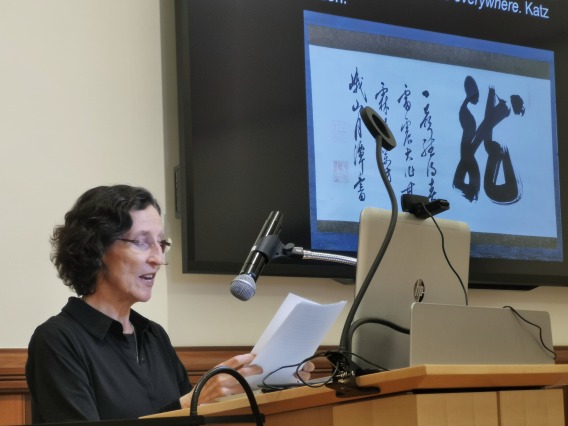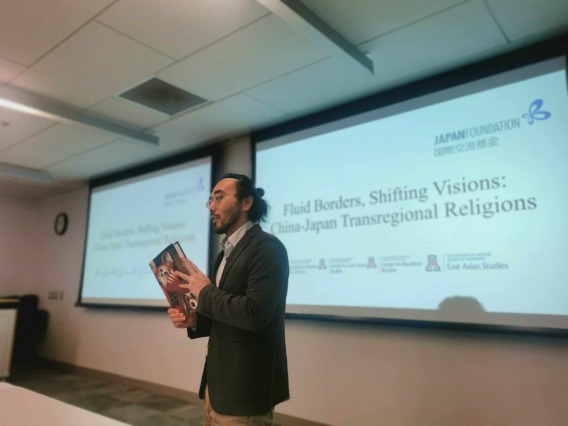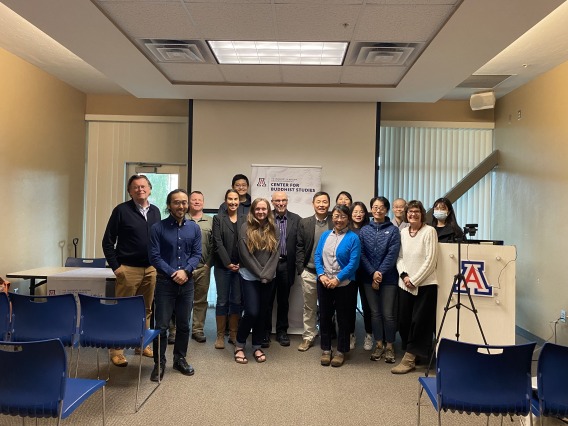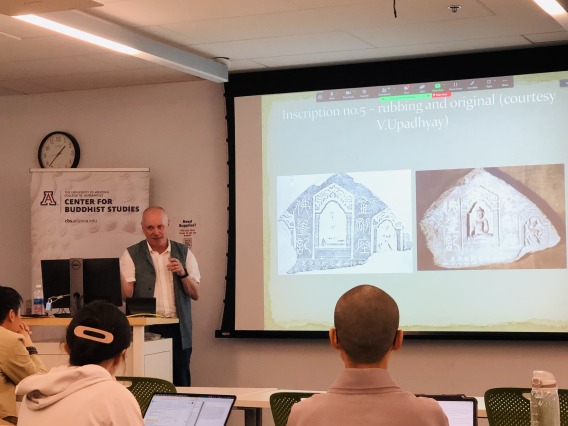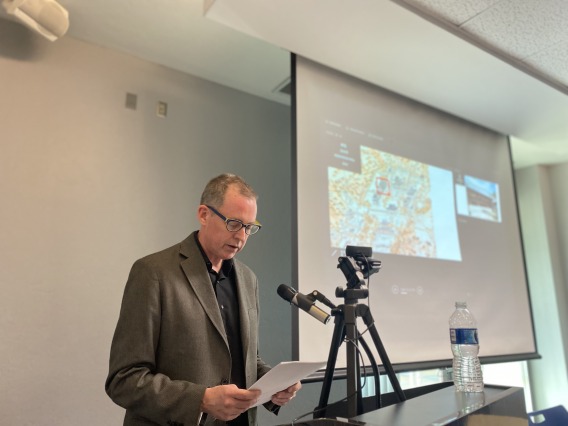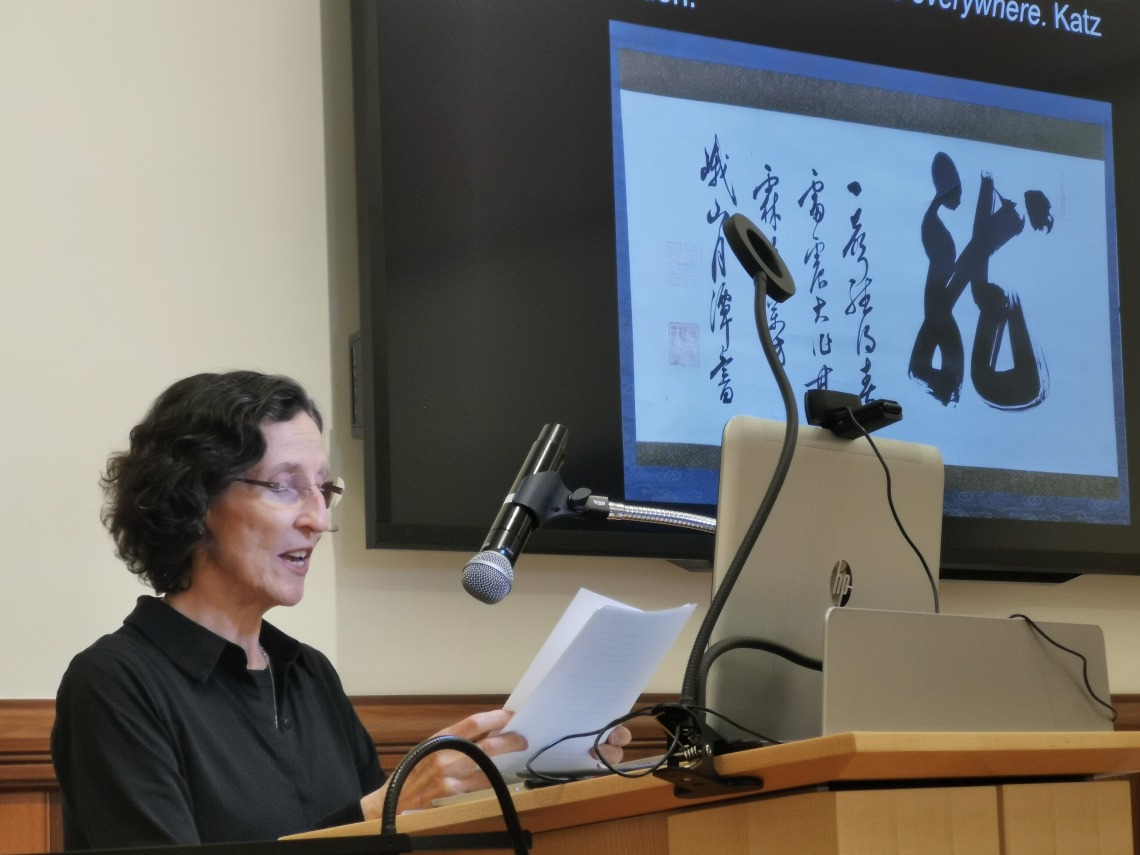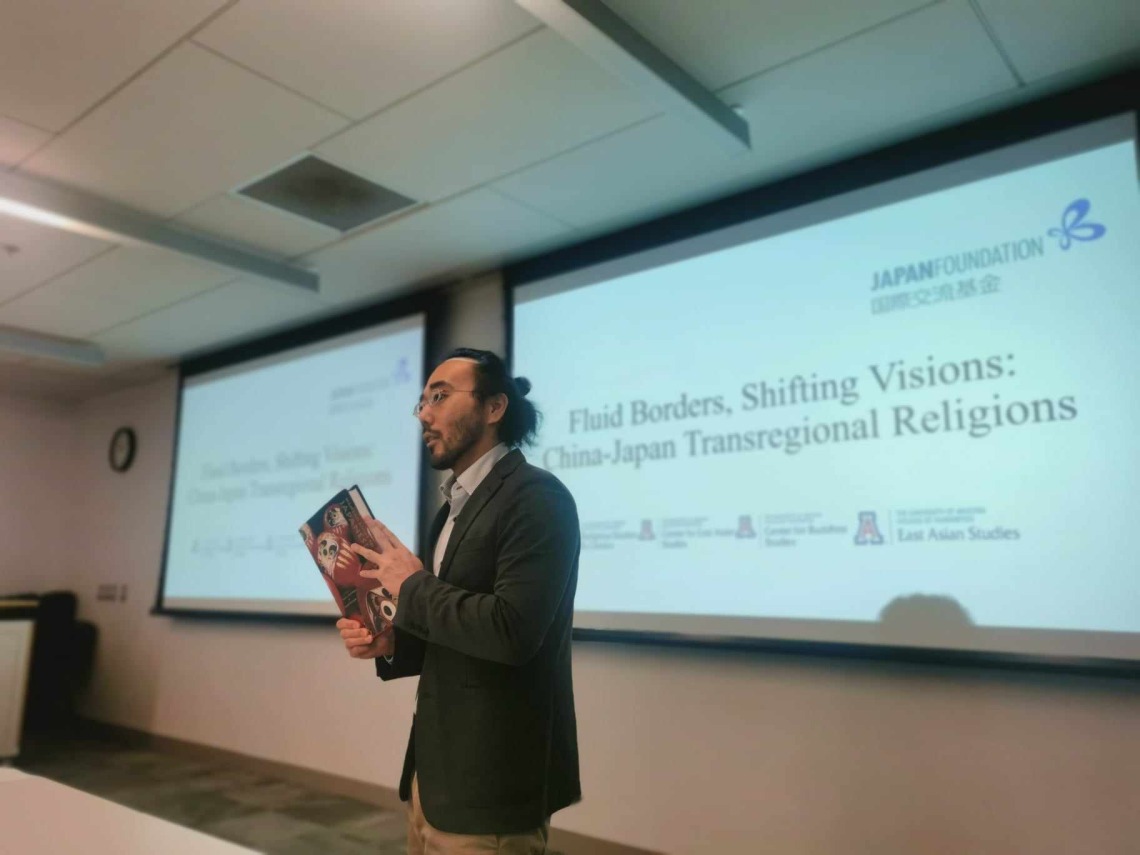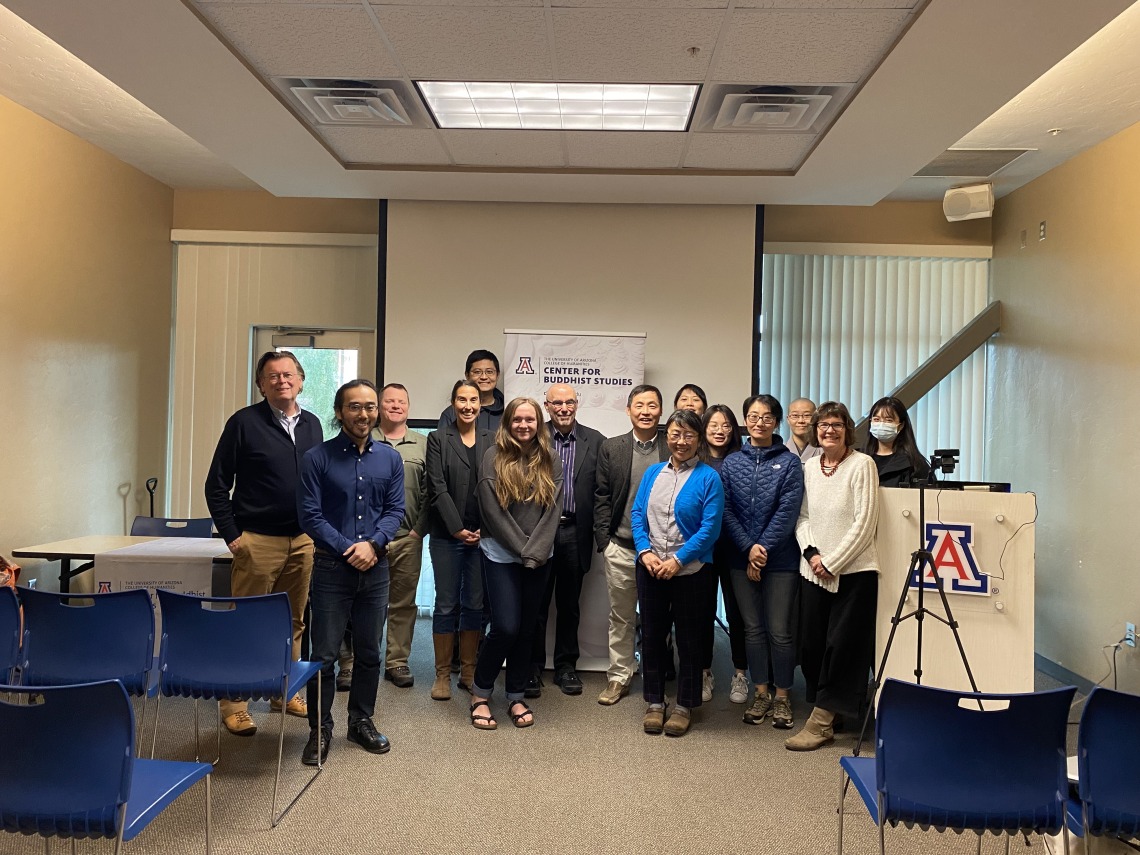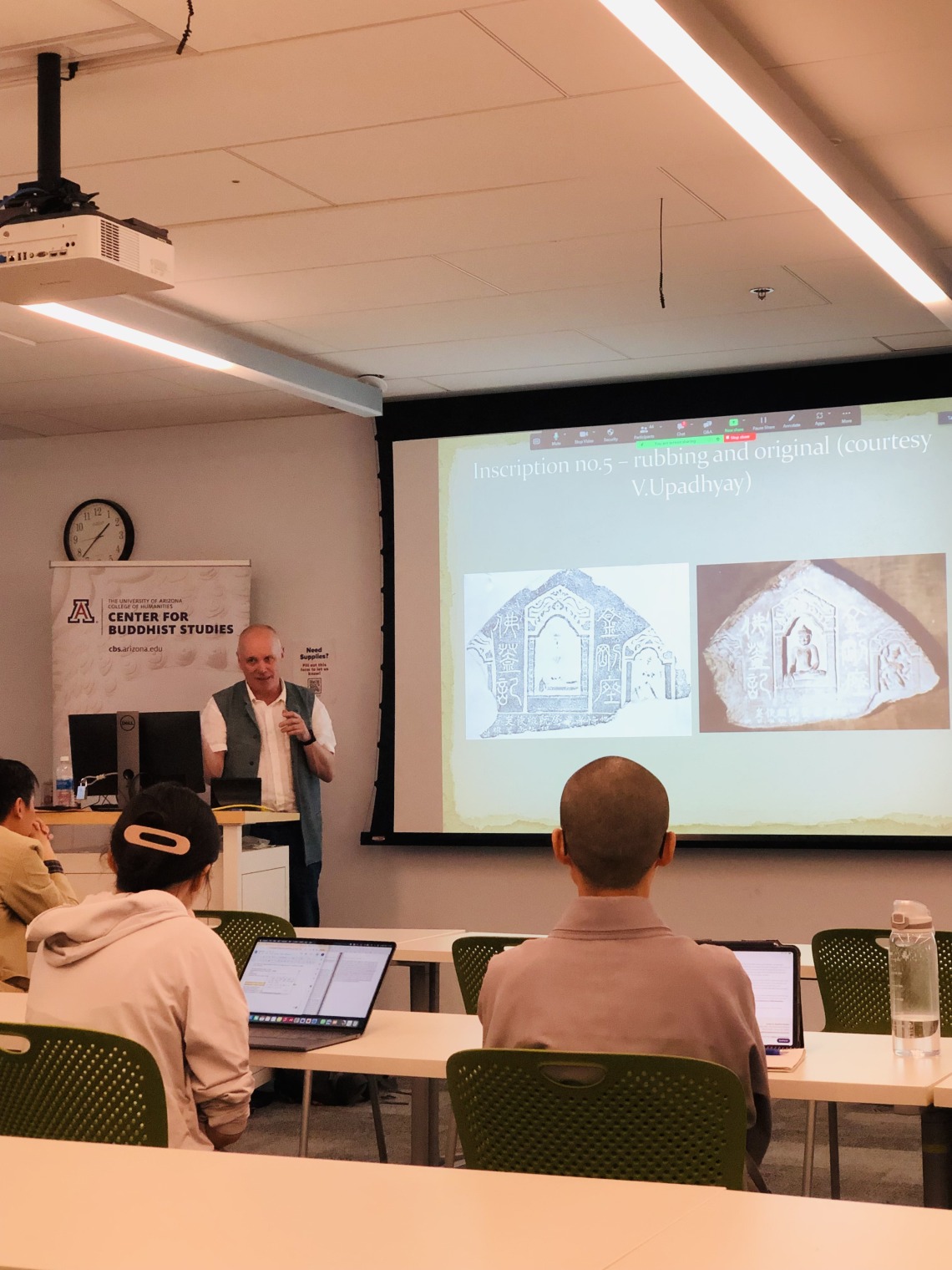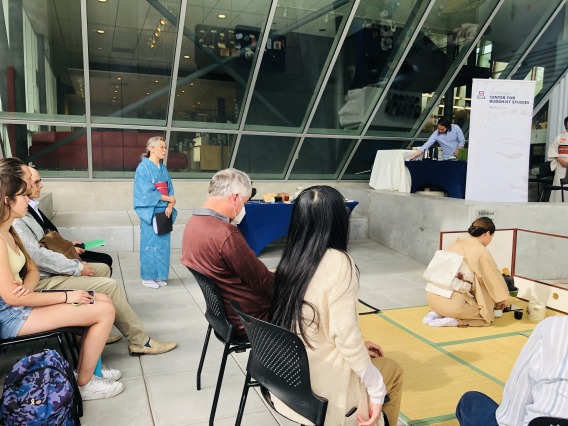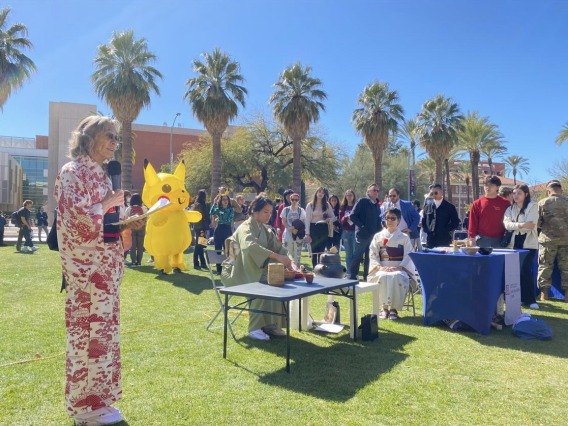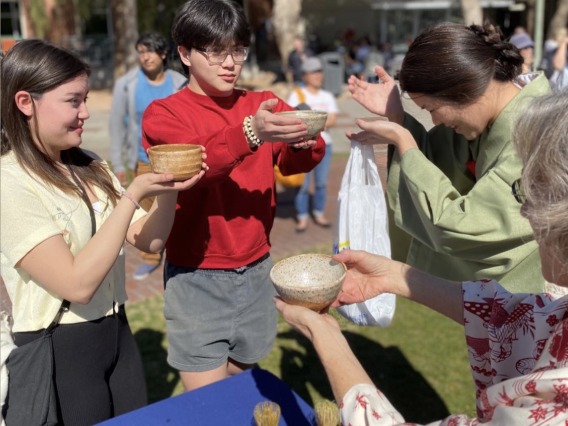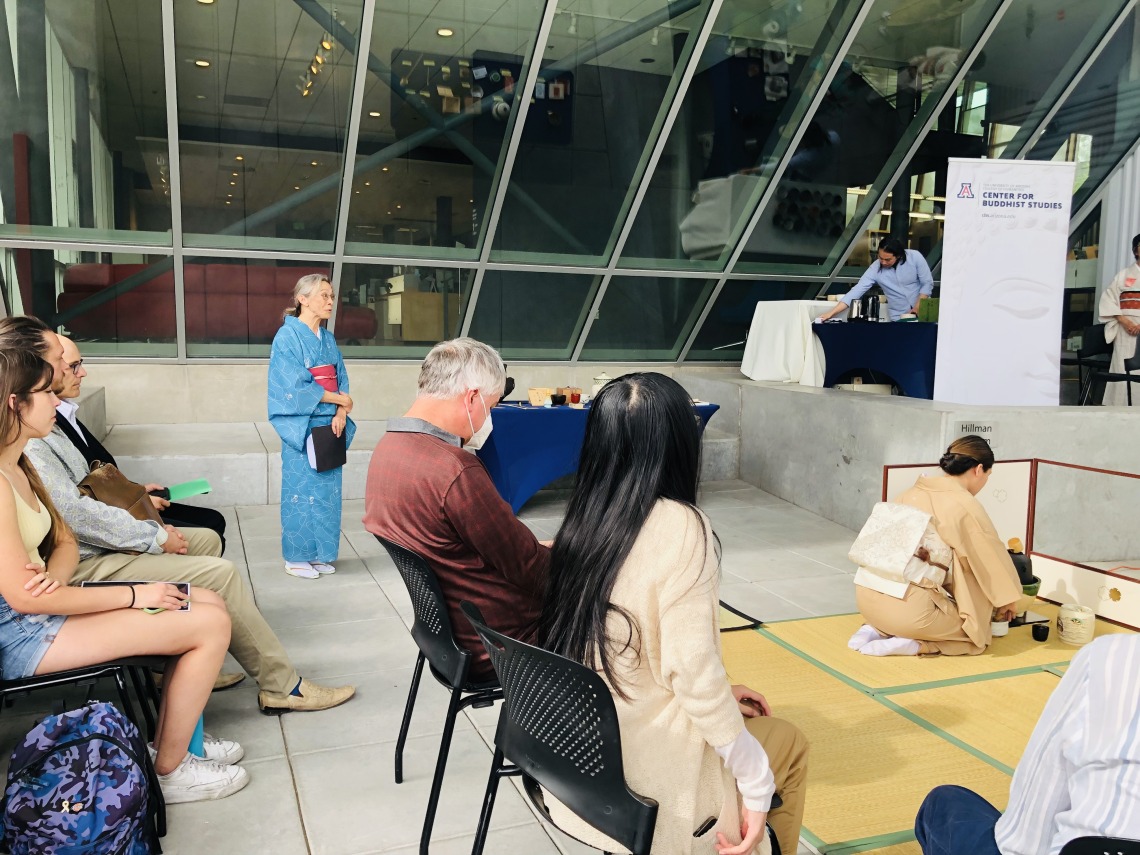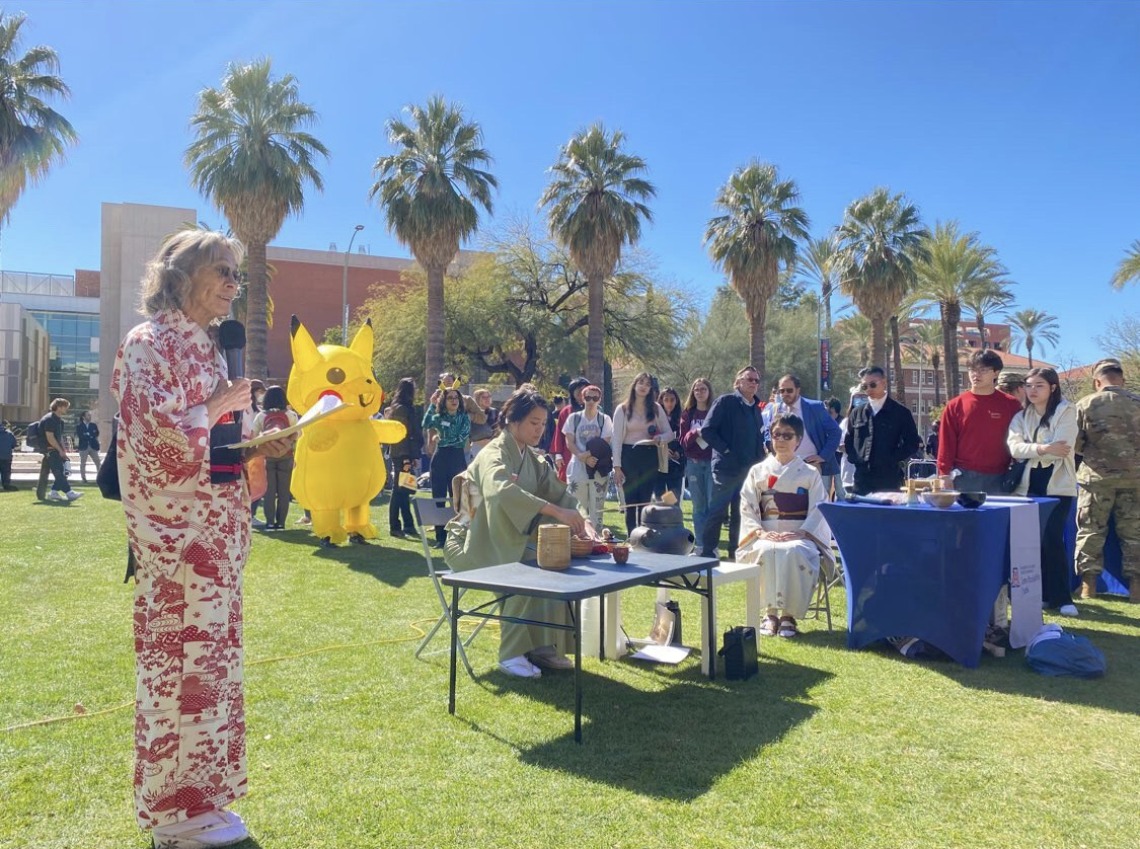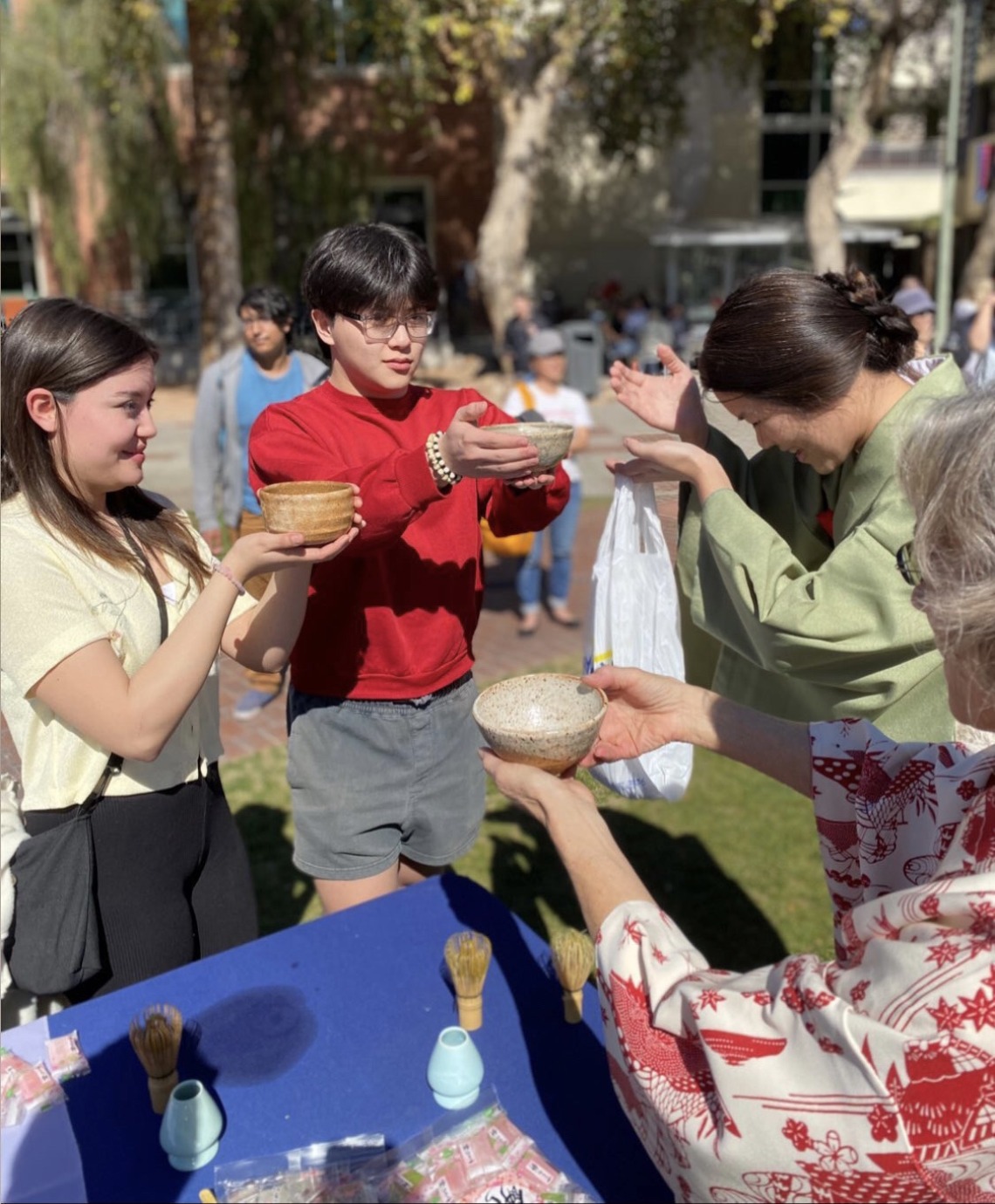In collaboration with Wanfu Temple in Fuqing, China, the Center for Buddhist Studies officially launched a year-long series of events commemorating the 350th death anniversary of Zen Master Yinyuan Longqi (Ingen Ryūki) in 2022. The year 2022 marked the 350th death anniversary of Zen Master Yinyuan Longqi (隱元隆琦 1592-1673, Ingen Ryūki in Japanese). Special ceremonies and events were held in both Japan and China to honor this great Zen master.
In North America, the Center for Buddhist Studies, College of Humanities at the University of Arizona organized a series of commemorative events which run for one year beginning May 3, 2022. These events presented and explored the extraordinary life of Zen Master Yinyuan and the great achievements of the Huangbo 黃檗 Chan tradition (known as the Ōbaku school of Zen Buddhism in Japan) that Yinyuan pioneered in China and Japan. These events highlighted the intersection between religion, art, and culture in China and Japan and were presented in both online and offline formats. Activities included an online exhibition of works of art related to the Ōbaku tradition, academic lectures and conference, musical concert, and tea-related events.
Online Art Exhibition
The online art exhibition True Image: Celebrating the Legacy of Yinyuan Longqi (Ingen Ryūki) and the Art of Ōbaku was launched in May, 2023. A curatorial team led by Jiang Wu, John Johnston, Patricia Graham, Elizabeth Sharf, Paul Berry, and James Baskind have examined the current collections related to Yinyuan and his Ōbaku tradition in world museums.
Launching Ceremony of the Online Art Exhibition
Our Center held the Launching Ceremony of the Online Art Exhibition event and the inaugural lecture on May 3, 2022. The event video is now available by clicking the YouTube link below: https://www.youtube.com/watch?v=oqewmYfuVd0
Event Program:
1. Tea ceremony performance by Sakura Tea Circle (not included in the video recording)
2. General Announcements and Acknowledgements by Jiang Wu, Director, Center for Buddhist Studies, Professor, Department of East Asian Studies
3. Remarks by Kimberly Jones, Vice Dean, College of Humanities
4. Remarks by Ven. Dingming, Abbot of Wanfu Temple, Fuqing, China
5. Remarks by Ven. Kondo Hakudo, Abbot of Manpukuji Temple, Uji, Japan
6. Remarks by Sueki Fumihiko, Professor Emeritus, The University of Tokyo and Nichibunken (International Research Center for Japanese Studies)
7. Introduction to the Online Exhibition by
i. Patricia J. Graham, Adjunct Research Associate, University of Kansas Center for East Asian Studies and Certified Appraiser of Asian Art, Appraisers Association of America
ii. Elizabeth Sharf, Visiting Scholar in the Center for Japanese Studies, University of California, Berkeley
8. Remarks by Albert Welter, Head, Department of East Asian Studies
9. Lecture: “Chinese Zen Master Yinyuan/Ingen in Global East Asia” by Jiang Wu
Translations of Remarks by Chinese and Japanese Guests:
1. Ven. Dingming, Abbot of Wanfu Temple, Fuqing, China
2. Ven. Kondo Hakudo, Abbot of Manpukuji Temple, Uji, Japan
3. Sueki Fumihiko, Professor Emeritus, Nichibunken
Exhibition Website
Visitors can take a self-guided tour of the online exhibition, which is organized into five rooms:
1. Ingen and Ōbaku Zen Lineage Ancestors
2. Ingen's Disciples
3. Artists and Poets
4. Arhat Imagery
5. Traces of Huangbo/Ōbaku Temples
In 2023, our staff and collaborators added 30 new works to the groundbreaking online exhibition True Image: Celebrating the Legacy of Yinyuan Lonqi (Ingen Ryūki) and the Art of Ōbaku. These additions come primarily from two private collections of Dr. Harald Conrad and Dr. Stuart Katz outside of Japan, and supplement works already in the exhibition from major museum collections in the West. True Image is the largest assemblage of Ōbaku works presented by an institution in the West. We are pleased to announce that True Image has been extended for an additional year, through May 2024.
Academic Lectures and Conference
Since 2022, the Ōbaku Ingen Lecture Series has hosted eight lectures, with recordings available on our Ōbaku Ingen Lecture Series page. These lectures are made possible thanks to the generous support from Wanfu Temple in Fuqing, Lingyin Temple in Hangzhou, and Matcha.com. Find out more lecture series of our Center here. The past lectures of Ōbaku Ingen Lecture Series are listed below:
Donations to the Centre of the World: The Chinese Inscriptions from Bodhgaya
Dr. Max Deeg | Professor of Buddhist Studies, Cardiff University
April 9 (Tuesday), 2024
Reflections on the Understanding, Appreciation and Authentication of Ōbaku Zen Calligraphy
Dr. Harald Conrad | Chair, Modern Japanese Studies, the University of Düsseldorf, Germany
March 27 (Monday), 2023
A network perspective on the two stages of the late Ming revival of Chinese Buddhism
Dr. Marcus Bingenheimer | Associate Professor of Religion, Temple University
March 13 (Monday), 2023
Japanese Monks of the Ōbaku Tradition: Their Art and Influence
Dr. Paul Berry | Independent Scholar
Feb. 21 (Tuesday), 2023
Dr. Elizabeth Horton Sharf | Independent Scholar
Feb. 14 (Tuesday), 2023
Dr. Robert Sharf | D. H. Chen Distinguished Professor of Buddhist Studies, Department of East Asian Languages and Cultures, the University of California, Berkeley; Chair, Berkeley’s Numata Center for Buddhist Studies
Feb. 13 (Monday), 2023
Dr. Patricia Graham | Independent Scholar
Oct. 24 (Monday), 2022
Chinese Zen Master Yinyuan/Ingen in Global East Asia
Dr. Jiang Wu | Director, Center for Buddhist Studies, University of Arizona
May 3 (Tuesday), 2022
At the conference Fluid Borders, Shifting Visions: China-Japan Trans-regional Religions in May 2023, UACBS sponsored a panel titled “In Commemoration of the 350th Anniversary of Ingen Ryūki’s Passing.” The talks included “Remembrance as Reignition: On the Periphery of the Making of the Art of Ōbaku” by Sinéad Vilbar, Cleveland Museum of Art (via Zoom); “Prognosticating the Past: Yinyuan Longqi, Chen Tuan, and Emperor Reigen, through the Lens of the Ōbaku Text, Tōzuihen” by James Baskind, University of Arizona Center for Buddhist Studies; and “The Nagasaki Trade of the Buddhist Books in the Seventeenth and Eighteenth Centuries as Seen from the Hakusai shomoku: With Special Attention to the Purchase of the Jiaxing Canon and the Role of the Ōbaku Monks” by Jiang Wu, University of Arizona.
Online Music Concert
On February 4, 2023, the Center presented A Voice From the Heart 一 葉心聲: A Special Concert Celebrating Master Yinyuan Longqi 隱元隆琦 (1592-1673). This concert highlighted Yinyuan’s poetic talent and deep spirituality. It was jointly produced by the Center for Buddhist Studies at
the University of Arizona, the Chinese Wanfu Temple, Ven. Kanho Yakushiji, MUGEN Creations, and Manpukuji in Uji, Japan. See our Youtube channel to watch the recording of the concert:
Tea-Related Event
On May 3, 2022, our Center held a Tea Ceremony performance by Sakura Tea Circle in the Launching Ceremony of the Online Art Exhibition event. In February 2023, we co-sponsored the East Asian Language and Culture Festival with a Sakura Tea Circle Tea Ceremony Demonstration.
Sakura Tea Circle Members: Arlene Watkins (MC), Lia Chen (Host), Sachiko Suzuki (Assistant). Performance (Temae): Urasenke school, Ryurei Temae 裏千家、立礼点前
About Tea Ceremony:
The Japanese Tea Ceremony, also known as chado or chanoyu, is a traditional way to appreciate tea. With the host preparing and presenting the matcha tea to the guest, it is also considered an art for this ceremonial and cultural activity. The tea culture started from ancient China and the Buddhist monk brought this art back to Japan in the 9th century. Since then, Zen Buddhism has deeply influenced the development of the Japanese Tea Ceremony.
The Tea Ceremony is one of the three classical Japanese arts of refinement. Its central philosophy has been articulated by the Tea master, Sen Rikyu (千利休), in the late 16th century in the four principles: “harmony (和, wa), respect (敬, kei), purity (清, sei), and tranquility (寂, jaku).”


